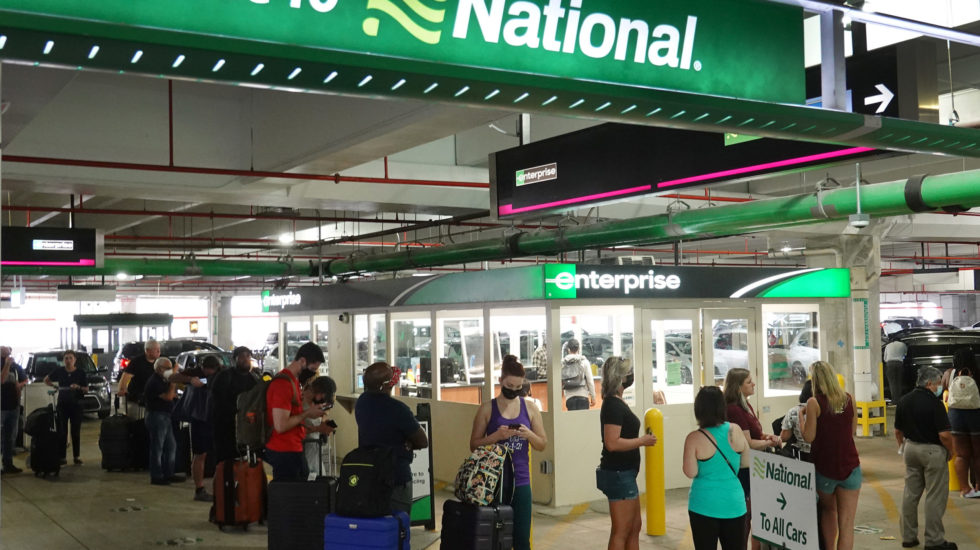The pandemic has changed the world in ways both big and small. Consider the rental car.
In Orlando, a Kia – a vehicle long associated with affordability – cost at least $300 a day during the spring break season, if you could get one at all.
Downstate, in Tampa, that would be considered a bargain. It wasn’t uncommon to shell out 500 bucks for a one-day rental. In February, 18 out of 20 Florida airports were entirely out of cars during holiday weekends, according to The Atlanta Journal Constitution.
Hawaii News Now reports that the cheapest available Maui rental in March was a Toyota Camry. That would have cost you $722 a day – the equivalent of about 100 hours of work at the federal minimum wage before taxes are taken out. If you were inclined to experience Honolulu with the top down, a convertible was running upwards of $1,000.
The situation got so desperate in Honolulu that tourists resorted to renting U-Haul trucks.
What gives?
A year ago, air travel came to a near halt, leading to a glut of rental cars. Rental companies parked their cars in unused lots at ballparks around the nation, and cars were rented for a fraction of their normal price — or sold as used cars. The industry sold off more than a half a million cars, about a third of their combined fleets, just to generate cash they needed to survive the crisis. Following a year of deep losses, rental car companies have been unable to rebuild their fleets, especially with auto plants shut by a shortage of computer chips needed to build cars.
Bloomberg offers a piece of advice, “If you’re planning a trip this summer, book your rental vehicle before you book your flight or hotel.”



